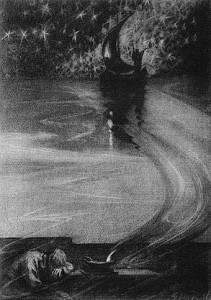 Blessed John Newman’s poem “The Dream of Gerontius” tells the story of a soul’s journey through death, and provides a meditation on the unseen world of Roman Catholic theology.
Blessed John Newman’s poem “The Dream of Gerontius” tells the story of a soul’s journey through death, and provides a meditation on the unseen world of Roman Catholic theology. 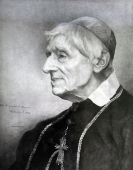
Click here for the full text of the poem
Gerontius (a name derived from the Greek word geron, “old man”) is a devout Everyman.Elgar’s setting uses most of the text of the first part of the poem, which takes place on Earth, but omits many of the more meditative sections of the much longer, otherworldly second part, tightening the narrative flow.
In the first part, we hear Gerontius as a dying man of faith, by turns fearful and hopeful, but always confident. A group of friends (also called “assistants” in the text) joins him in prayer and meditation. He passes in peace, and a priest, with the assistants, sends him on his way with a valediction. In the second part, Gerontius, now referred to as “The Soul”, awakes in a place apparently without space or time, and becomes aware of the presence of his guardian angel, who expresses joy at the culmination of her task (Newman conceived the Angel as male, but Elgar gives the part to a female singer). After a long dialogue, they journey towards the judgment throne.
They safely pass a group of demons, and encounter choirs of angels, eternally praising God for His grace and forgiveness. The Angel of the Agony pleads with Jesus to spare the souls of the faithful. Finally Gerontius glimpses God and is judged in a single moment. The Guardian Angel lowers Gerontius into the soothing lake of Purgatory, with a final benediction and promise of a re-awakening to glory. –wiki
Here is mezzo-soprano Sarah Connelly as the angel offering a beautiful version of “Softly and Gently” (which is the last passage of Edward Elgar’s musical oration of the “Dream of Gerontius”) as he is peacefully being placed into the lake of Purgatory. A stunning work and meditation for this or any day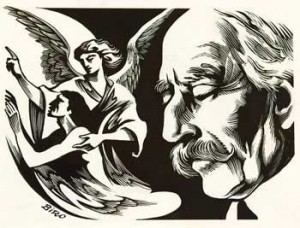
.
SOFTLY and gently, dearly-ransomed soul,
In my most loving arms I now enfold thee,
And, o’er the penal waters, as they roll
I poise thee, and I lower thee, and hold thee.
And carefully I dip thee in the lake,
And thou, without a sob or a resistance,
Dost through the flood thy rapid passage take,
Sinking deep, deeper, into the dim distance.
Angels, to whom the willing task is given,
Shall tend, and nurse, and lull thee, as thou liest;
And Masses on the earth and prayers in heaven,
Shall aid thee at the Throne of the most Highest
Farewell, but not forever! Brother dear,
Be brave and patient on thy bed of sorrow;
Swiftly shall pass thy night of trial here,
And I will come and wake thee on the morrow.
.

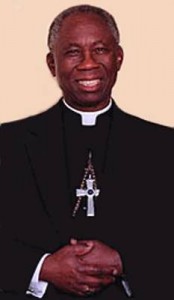
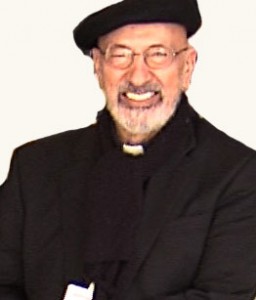

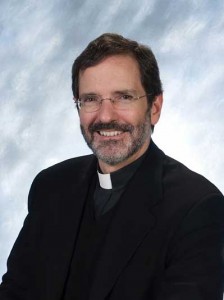

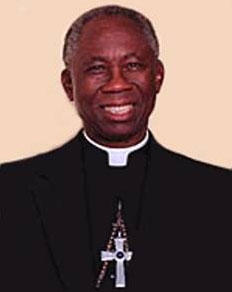

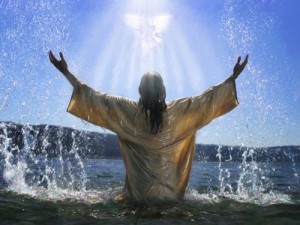


 Episode 2 -Baptism: Born from Above– The importance of the name we are given at baptism. The role and significance of godparents.
Episode 2 -Baptism: Born from Above– The importance of the name we are given at baptism. The role and significance of godparents.